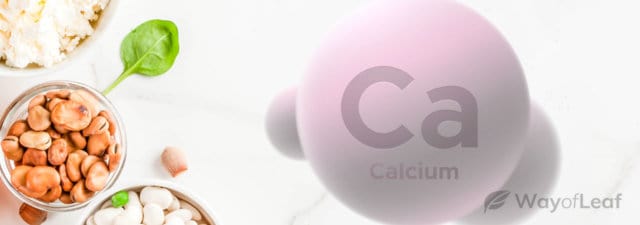Vitamins are organic micronutrients that the body requires to function correctly. They play a fundamental role in cell growth, development, and activity. Without them, we would become seriously ill.
Each vitamin has unique benefits, and many of them work together to maintain optimal health.
There are 13 vitamins that can be found in food and supplements. Each has unique benefits, and many of them work together to maintain optimal health.
Below, we have compiled a list of all the vitamins and their functions, including their recommended daily intakes. We will also discuss the best source of vitamins and what to consider when using a supplement.
What Do Vitamins Do in the Body?
Billions of chemical reactions are happening inside our bodies every second. Many of these reactions rely upon specialized proteins known as enzymes, and many enzymes need vitamins to function. Vitamins that form part of an enzyme are known as cofactors, and several of the B vitamins work in this way.
Other vitamins also have crucial roles, including aiding mineral absorption, producing energy from food, and protecting cells from damage.

Although vitamin deficiencies are relatively uncommon in developed countries, they can still affect people with poor diets or underlying medical conditions. This can lead to long-term health problems like heart disease, cancer, or weak bones.
Now, let’s look at the different types of vitamins and their specific functions.
Different Types of Vitamins and Their Functions
There are water-soluble and fat-soluble vitamins. Below, we will explain the functions of each type of vitamin in more detail.
Water-Soluble Vitamins
Water-soluble vitamins include the B vitamins and vitamin C. They dissolve in water, and the kidneys excrete them in urine, meaning they pass through the body relatively quickly. This means we must consume water-soluble vitamins regularly to maintain healthy levels. The exception to the rule is vitamin B12, which the liver can store for a long period of time.
Thiamine (Vitamin B1)
Vitamin B1 plays a critical role in metabolism, converting carbohydrates from food into energy. It also helps to maintain heart function and a healthy nervous system.
Vitamin B1 is found in meat, eggs, dried milk, legumes, and whole grains.
Recommended Daily Intake:
- 1.1mg for women
- 1.2mg for men
- Upper limit: unknown
Riboflavin (Vitamin B2)
Vitamin B2 works closely with the other B vitamins to promote healthy growth and red blood cell production.
Food sources include meat, dairy products, leafy greens, and fortified bread and cereals.
Recommended Daily Intake:
- 1.1mg for women
- 1.3mg for men
- Upper limit: unknown
Niacin (Vitamin B3)
Vitamin B3 helps maintain healthy skin and is also important for nerve function. It also has cholesterol-lowering properties, reducing the risk of cardiovascular disease. The active forms of vitamin B3 are known as nicotinic acid and niacinamide.
Vitamin B3 can be found in meat, fish, eggs, avocado, nuts, legumes, and potatoes.
Recommended Daily Intake:
- 14mg for women
- 16mg for men
- Upper limit: 35mg
Pantothenic Acid (Vitamin B5)
Vitamin B5 is involved in food metabolism. It also plays a role in hormone and cholesterol production.
The best sources are poultry, eggs, milk, legumes, leafy greens, mushrooms, potatoes, and whole-grain cereals.
Recommended Daily Intake:
- 5mg for women
- 5mg for men
- Upper limit: unknown
Pyridoxine (Vitamin B6)
Vitamin B6 has a vital role in red blood cell formation and brain function. It also acts as a cofactor for many different enzymes.
Vitamin B6 is found in meat, legumes, nuts, avocado, bananas, and whole grains.
Recommended Daily Intake:
- 1.3mg for women aged 19–50
- 1.5mg for women aged 51+
- 1.3mg for men aged 19–50
- 1.7mg for men aged 51+
- Upper limit: 100mg
Biotin (Vitamin B7)
Vitamin B7 is essential for protein and carbohydrate metabolism. It also plays a role in hormone and cholesterol production.
Sources include organ meats, egg yolk, milk, chocolate, cereals, legumes, and nuts.
Recommended Daily Intake:
- 30mcg for women
- 30mcg for men
- Upper limit: unknown
Folate or Folic Acid (Vitamin B9)
Vitamin B9 works closely with vitamin B12 to create red blood cells. It also plays a role in DNA production, and pregnant people must consume enough to prevent congenital disabilities like spina bifida. Folate is the organic form of vitamin B9, while folic acid is synthetic.
Food sources include green vegetables, dried beans and lentils, peanut butter, oranges, and wheatgerm.
Recommended Daily Intake:
- 400mcg for women
- 400mcg for men
- Upper limit: 1000mcg
Cobalamin (Vitamin B12)
Vitamin B12 has a critical role in red blood cell production. It is also involved in metabolism and nervous system function.
The body can use animal sources of vitamin B12 better than plant sources. Examples include meat, shellfish, eggs, and milk. It is also added to some products like soymilk.
Recommended Daily Intake:
- 2.4mcg for women
- 2.4mcg for men
- Upper limit: unknown
Vitamin C
Vitamin C is also known as ascorbic acid. It is necessary for healthy teeth and gums, and not getting enough can cause tooth loss. It also helps the body absorb iron, keeps the tissues healthy, and promotes wound healing.
Vitamin C is primarily found in fruit and vegetables. Green vegetables, citrus fruits, strawberries, peppers, and tomatoes are excellent sources.
Recommended Daily Intake:
- 75mg for women (110mg for smokers)
- 90mg for men (125mg for smokers)
- Upper limit: 2000mg
Fat-Soluble Vitamins
Fat-soluble vitamins include vitamins A, D, E, and K. They dissolve in fat, and our bodies can absorb them best when we consume them with some fatty food. These nutrients can be stored in the body for long periods, primarily in the liver, muscles, and fatty tissue.

Vitamin A
Vitamin A is necessary for healthy bones and teeth, soft tissue, skin, and mucous membranes. It also promotes eye health and is important for good vision.
Preformed vitamin A (retinol) can only be found in animal food sources, including meat, fish, eggs, and dairy products. However, some plants contain compounds called carotenoids, which the body converts into vitamin A. Dark-colored fruit and vegetables are the best sources.
Recommended Daily Intake:
- 700mcg for women
- 900mcg for men
- Upper limit: 3000mcg
Vitamin D
Vitamin D aids calcium absorption and is essential for bone health. It also helps to regulate calcium and phosphorus levels in the body. There are two forms of vitamin D; Vitamin D2 (ergocalciferol) and D3 (cholecalciferol). The two vitamins work similarly.
Fatty fish, fish oil, and dairy products are the best food sources of vitamin D. Our bodies can also make it from cholesterol when sunlight hits the skin.
Recommended Daily Intake:
- 15mcg for women aged 19–70
- 20mcg for women aged 71+
- 15mcg for men aged 19–70
- 20mcg for men aged 71+
- Upper limit: 100mcg
Vitamin E
Also known as tocopherol, vitamin E is an antioxidant and helps to protect cells from damage. Furthermore, it plays a role in red blood cell production and helps the body utilize vitamin K.
Vitamin E is in vegetable oils and margarine, avocado, nuts and seeds, leafy greens, mango, papaya, and wheatgerm.
Recommended Daily Intake:
- 15mg for women
- 15mg for men
- Upper limit: 1000mg
Vitamin K
Vitamin K is necessary for blood clotting and plays a role in bone health. There are two forms; Vitamin K1 (phylloquinone) and K2 (menaquinones).
Vitamin K1 can be found in some vegetables, especially cabbage, cauliflower, and leafy greens. Meat, fish, eggs, and cereals are also good sources. Bacteria in the digestive system make vitamin K2.
Recommended Daily Intake:
- 90mcg for women
- 120mcg for men
- Upper limit: unknown
Do Vitamins Work?
There is a wide variety of vitamin and mineral supplements on the market, and consumers may wonder how well they work.

While vitamin supplements are not a substitute for a balanced diet, they can help rectify deficiencies in individuals with underlying medical conditions. They may also be helpful when the body’s nutrient requirements increase, for example, during pregnancy.
There is currently not enough evidence to suggest that taking a vitamin supplement can prevent or treat specific diseases. However, naturally-occurring nutrients are an essential component of a healthy diet, and everyone should aim to eat foods containing all the vitamins regularly.
What Is the Best Source of Vitamins?
As we have explained, food sources are the best way to get enough vitamins daily. Our bodies can use these nutrients effectively, and there is little danger of overdose. Supplements are a good alternative for people who cannot get enough vitamins from food. However, it is essential to choose carefully.
Look for natural options where possible and avoid supplements with added sweeteners and colorings.
Individuals should only buy from reputable brands that are transparent about their ingredients and publish lab reports for their products. Look for natural options where possible and avoid supplements with added sweeteners and colorings.
It is also essential to be cautious when taking multiple supplements. Because fat-soluble vitamins are stored in the body for a long time, it is dangerous to take too much. Therefore, consumers should read the label of each item carefully and ensure they do not exceed the daily upper limits.
List of Vitamins and Their Functions
Vitamins are crucial for good health, and everyone should aim to consume enough each day. A balanced diet is the best source of vitamins, but some people need to take supplements.
These products can be helpful for some individuals, but it is necessary to exercise caution. Therefore, we recommend that anyone considering supplementation consults a physician or dietician for advice.
Want to learn about vitamins’ role in health and nutrition? Check out more informative articles here at WayofLeaf:
- The Best Vitamins for Skin Health
- The Best Vitamins and Minerals for Muscle Growth
- Vitamins and Minerals for Immune System Health








